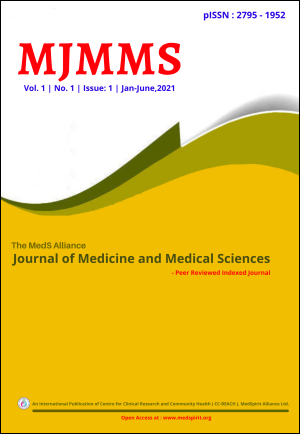Willingness to Pay and Expected Benefits for Social Health Insurance: A Cross-sectional Study at Pokhara Metropolitan City
DOI:
https://doi.org/10.3126/mjmms.v1i1.42945Keywords:
Expected benefit, premium, social health insurance, willingness to payAbstract
INTRODUCTION: The government supported SHI is the largest health insurance schemes ever launched in the country since 2016 by Health Insurance Board. Prior to UHI program, small scale community health insurance programs are running in fragmented structure The paper aims to examine the association between the potential policyholder's paying willingness for the social health insurance their characteristics, and tries to predict the willingness to pay for social health insurance schemes and their expected benefits from the SHI run by Government of Nepal.
MATERIALS AND METHODS: The study was carried out during Jan-July 2018 in Pokhara Metropolitan city 29, Kaski District, Nepal.
RESULTS: Among the 5,000 households residing in the study area 360 households who have not purchased social health insurance schemes till the survey period but interested to buy within one year were selected for the study. Respondents were selected with purposive sampling method. The association between respondents' characteristics and their willingness to pay for SHI and expected benefits from SHI has been explore using the chi square test and found that association is significant with the family size and education. The predictors variables are identified using the hierarchical regression model. The study reveals that among seven demographic characteristics of respondents (gender, age group, household head, family size, ethnicity, qualification, and occupation), family size and profession are good predictors for willingness to pay SHI and family size and family head are the good predictors for the expected benefits.
CONCLUSIONS: The study concludes family size is most influential factors while deciding the premium and sum assured for social health insurance, however, family head influences expected benefits while profession influences amount of premium.
Downloads
Downloads
Published
How to Cite
Issue
Section
License
Copyright (c) 2021 Rabindra Ghimire, Shreejana Wagle

This work is licensed under a Creative Commons Attribution-NonCommercial 4.0 International License.




